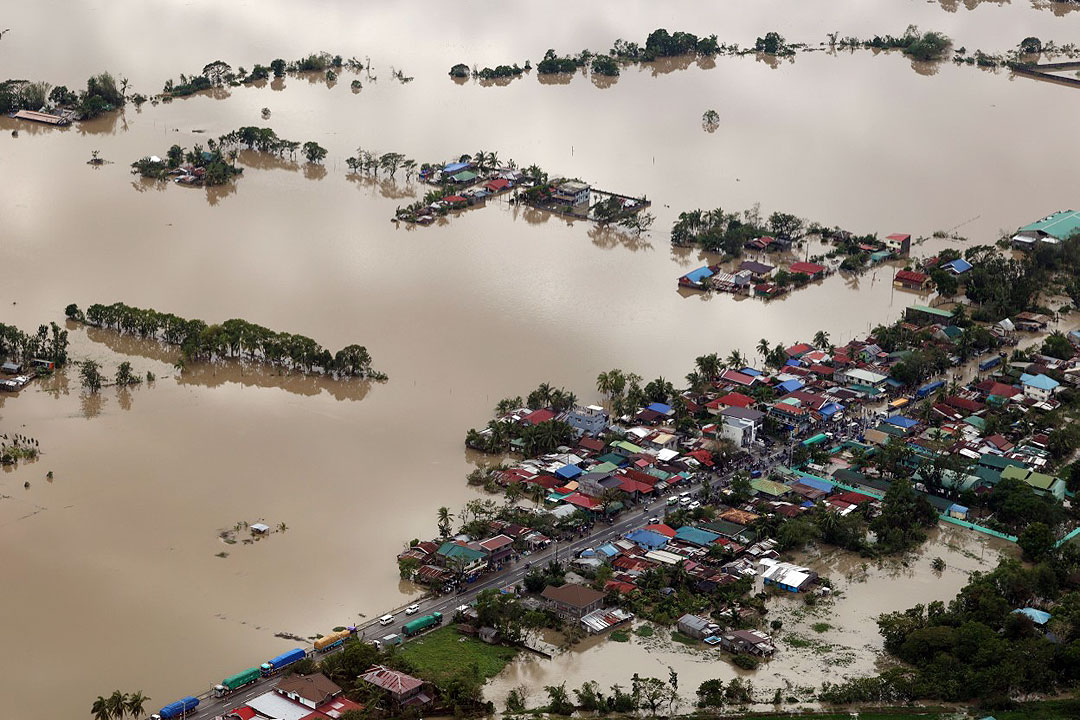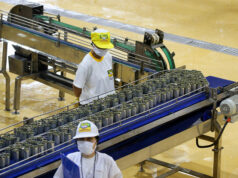Safety nets touted as infra job-creation engine stalls

By Chloe Mari A. Hufana, Reporter
THE government should address the negative trend in employment by expanding social safety nets and redeploying workers to “green” jobs, labor advocates said.
They said the job creation being counted on from infrastructure could be stalling with the Department of Public Works and Highways (DPWH) paralyzed by internal investigations and staff upheaval in the wake of the flood-control corruption scandal.
Benjamin B. Velasco, an assistant professor with the University of the Philippines School of Labor and Industrial Relations, said the flood-control investigations will result in job losses for construction workers.
“On the other hand, tolerating massive graft also has negative labor market impacts,” he said via Facebook Messenger.
The Philippine Statistics Authority reported on Wednesday that the jobless rate hit a three-year high in July at 5.3%, with agriculture jobs taking the biggest hit in the wake of the heavy July rains. Flooded fields led farmers to switch to construction jobs to make ends meet, though that industry could soon be facing its own slowdown due to the corruption probes.
“Ghost projects mean no actual work is done and no jobs are created,” Mr. Velasco added.
President Ferdinand R. Marcos, Jr., during an inspection of flood control projects worth billions of pesos in August, discovered that many of the promised structures were either defective or nonexistent.
Mr. Velasco urged the government to cushion displaced workers through social protection measures, including unemployment insurance via the Social Security System, while accelerating a shift toward sustainable employment.
“(The government should) ensure a just transition and alternative jobs in building public transport facilities and leading the shift to renewable energy through solarization and windmills,” he said.
The 5.3% jobless rate in July was equivalent to 2.59 million jobless workers, up from 2.38 million a year earlier and 1.95 million in June.
The July reading matched the jobless rate from August 2022. In June 2022, unemployment hit 6%.
Skilled agricultural, forestry, and fishery workers declined by 974,000 jobs year on year in July.
The Philippines is hit by about 20 tropical storms each year. Nearly 70% of these weather disturbances occur between July and October, the peak of the typhoon season, according to the government weather service.
In the face of these calamities, the government is losing to corruption billions of pesos allocated for flood mitigation projects.
In response, the government on Thursday issued Executive Order No. 94, creating an independent body to investigate anomalies across all infrastructure projects.
Federation of Free Workers President Jose Sonny G. Matula warned that corruption in flood control and other infrastructure projects has worsened the jobs crisis by diverting public funds away from investment that could have supported rural livelihoods, housing and green industries.
He said the spike in unemployment reflects systemic governance failures. Flood-control projects, in particular, have been turned into conduits for corruption rather than tools to mitigate disasters or create decent work.
Billions of pesos lost to ghost or overpriced projects have robbed farmers, fisherfolk and workers of opportunities for stable employment, he noted.
Even workers within the Department of Public Works and Highways face insecurity, with thousands under contract-of-service or job-order status, he said.
“When funds for flood control are stolen, communities lose jobs and remain vulnerable to flooding. Corruption is the real enemy of workers,” Mr. Matula said via Viber.
He called for greater worker and civil society participation in oversight.
“This kind of corruption is also a major deterrent to investors. who could otherwise bring in capital, build industries, and create thousands of jobs,” he said.
The Philippines has formally adopted International Labour Organization guidelines on the just energy transition, and the Department of Labor and Employment (DoLE) recently unveiled a human resource development plan for green jobs.
The framework, Mr. Velasco said, is already in place.
“The legal and policy framework exists. Political will is all that is needed to create sustainable and green jobs for affected construction workers,” he said.
In a statement on Thursday, Finance Secretary Ralph G. Recto said the government is strengthening rural infrastructure, digital connectivity, and agricultural training.
It also ramped up job facilitation through PhilJobNet, job fairs, and a new data-sharing deal with the central bank. Training programs from the Technical Education and Skills Development Authority (TESDA) and the Department of Social Welfare and Development (DSWD), and a TESDA-TCL refrigeration center are being rolled out.
Meanwhile, the underemployment rate rose to 14.8% in July, up from 12.1% a year earlier and 11.4% in June.
This meant 6.8 million workers were seeking either longer working hours or additional jobs — compared with 5.77 million a year earlier.
Former Agriculture Undersecretary Fermin D. Adriano said weak flood defenses magnified the losses for farmers, who are already dependent on nonagricultural work to survive.
He noted that farmers earn about half their income from nonagriculture-related activities.
“They are mostly working as construction workers during off-peak planting season, as income from farming is not enough to sustain their family,” he said via Viber.
With repeated crop destruction, farmers also have little incentive to invest in improving productivity, leaving agriculture less able to meet growing food demand.
“(The) long-term consequence is lower or stagnant productivity and higher food prices because agriculture cannot efficiently produce [the] food requirements of the population,” Mr. Adriano noted.
“Since they cannot work and lose income due to the destruction of produce by flood, then they will be consigned to poverty.”



